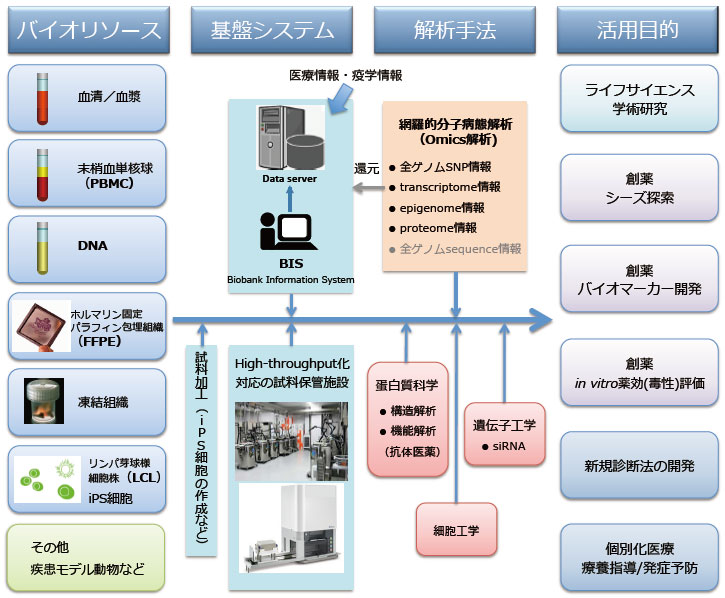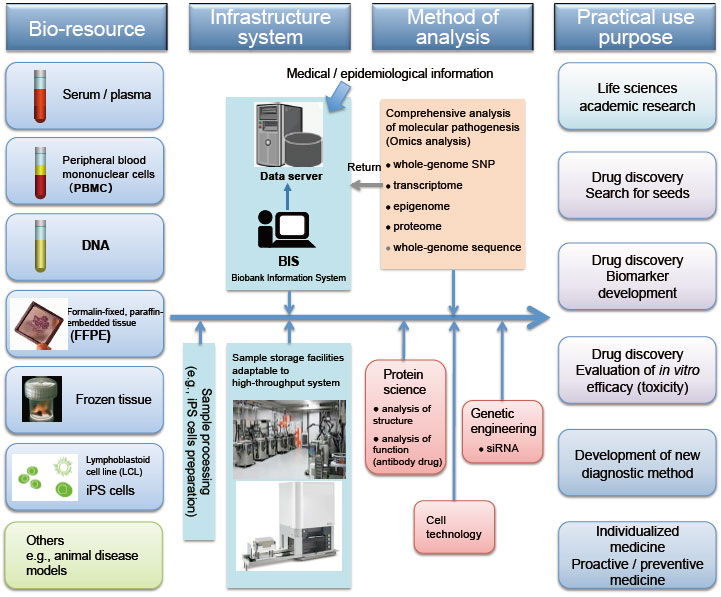Samples and Clinical information
- For Researchers
- Samples and Clinical information
- NCBN Catalog Databases
- Research Activities/Achievements
- Sample Provision Summary
Samples and clinical information collected by NCBN
As shown in the schematic diagram below, this biobank project aims to store and manage a variety of biological samples collected for academic research, drug discovery research, and research for the development of new diagnostic methods and personalized medicine, etc., and to effectively utilize them for collaborative research, etc. The six NCs differ from each other in the diseases they mainly treat (cancer, cardiovascular disease, psychiatry/neurology/muscular disease, infectious diseases/metabolic diseases/immunodeficiencies, growth diseases, and geriatric diseases). ), cardiovascular diseases, psychiatric, neurological, and muscular diseases, infectious diseases, metabolic diseases, immunodeficiency diseases, growth diseases, and geriatric diseases, and they collect high-quality samples with highly accurate clinical information while making use of their respective expertise. In addition, we are able to collect across multiple institutions, and are focusing on collecting specimens for four priority diseases that affect the health of a relatively large number of people: (1) cancer, (2) cardiovascular disease and its risk factors, (3) dementia, and (4) allergy/immunology.
English version
Japanese version
Protocol・SOP
| Name of NC (abbreviation) | NCC | NCVC | NCNP | JIHS (NCGM) |
NCCHD | NCGG | ||
| Main Research |
|
|
|
|
|
|
||
Matters Pertaining to Research
Samples and clinical information from each NC biobank comprising the NCBN are handled in the form of "joint research" or "paid provision" with the NC. Whether "provision is possible" or "joint research" is more appropriate depends on the content of the samples and information, the research, and the NC. (Click here for contact information)


